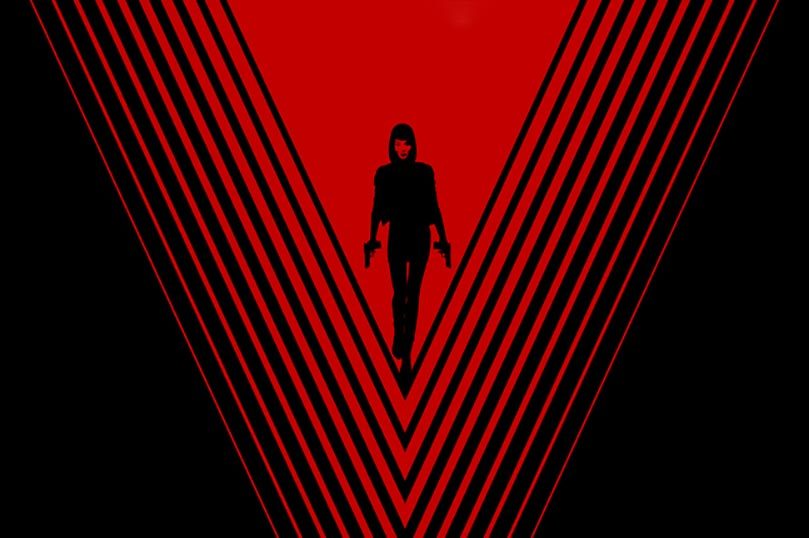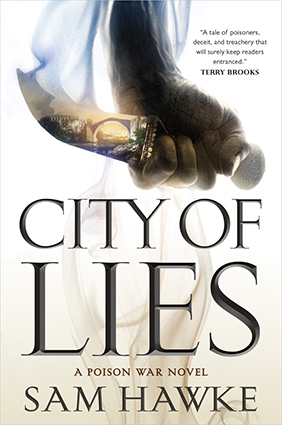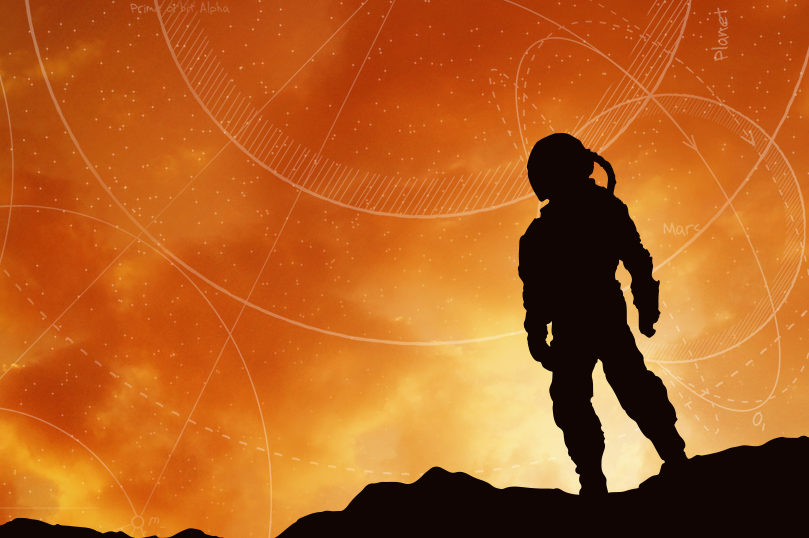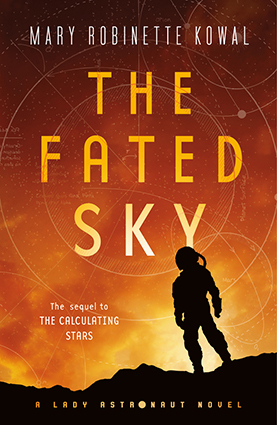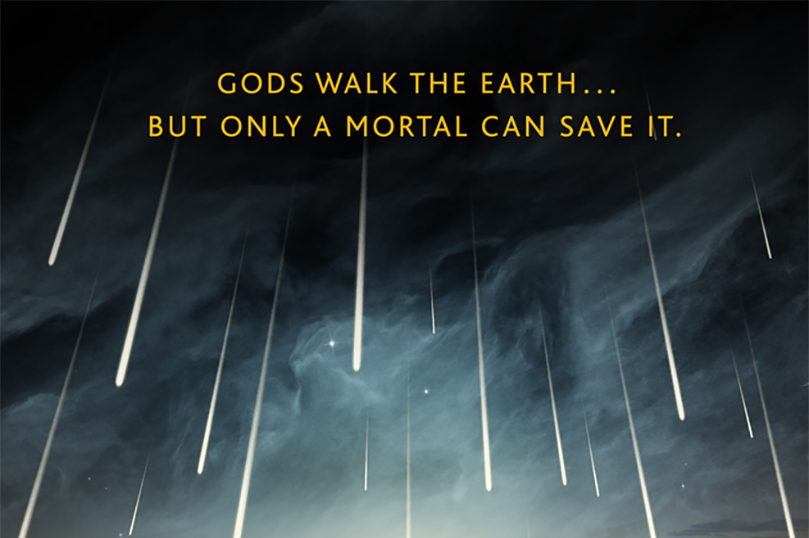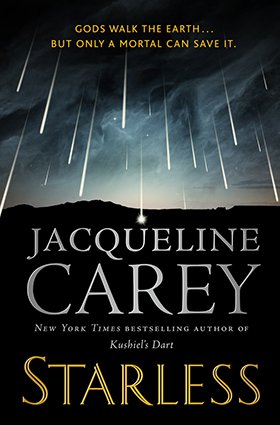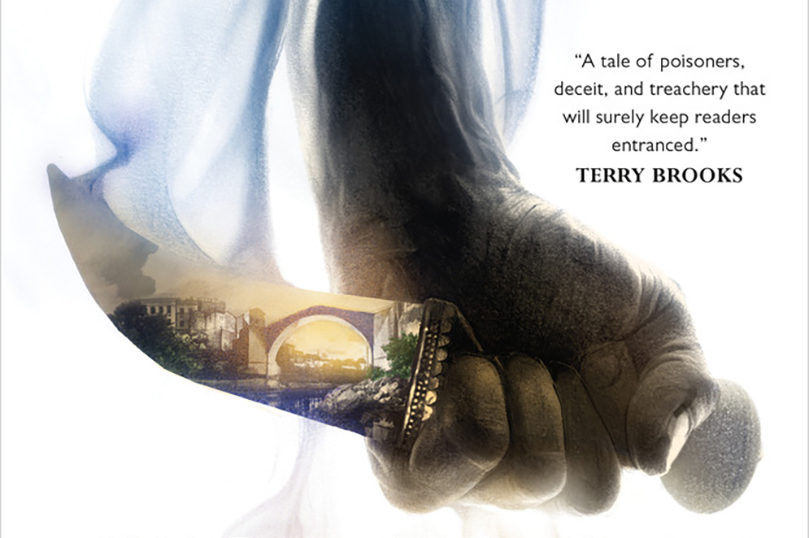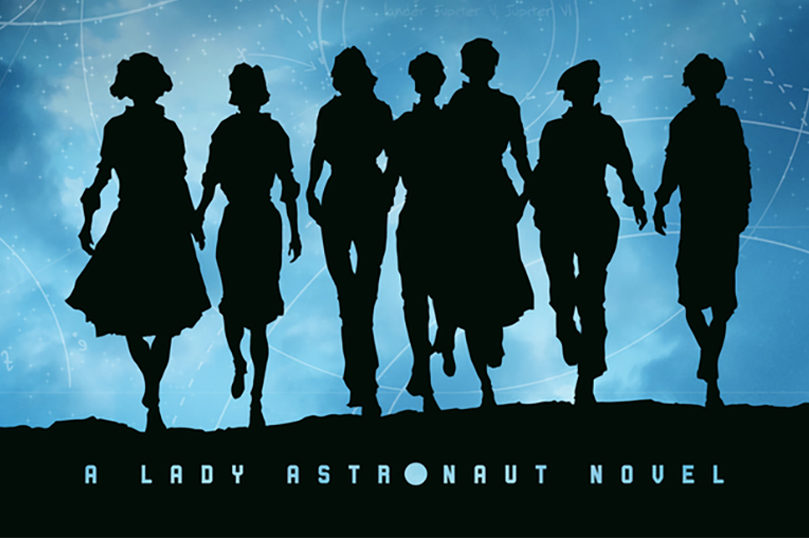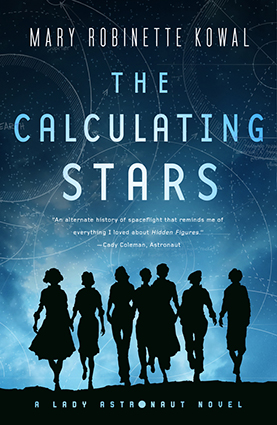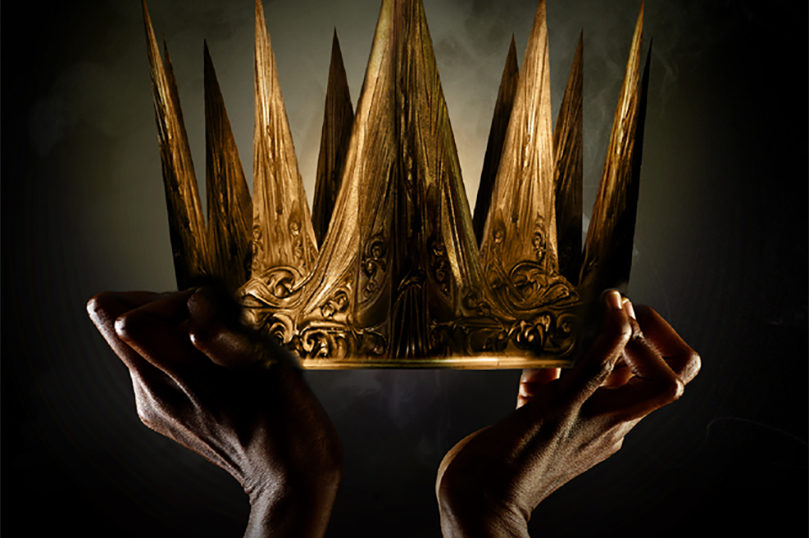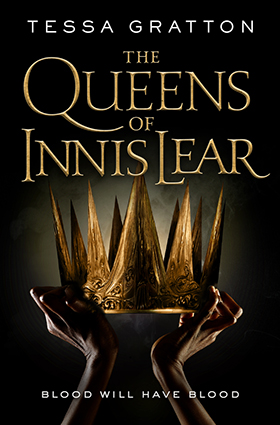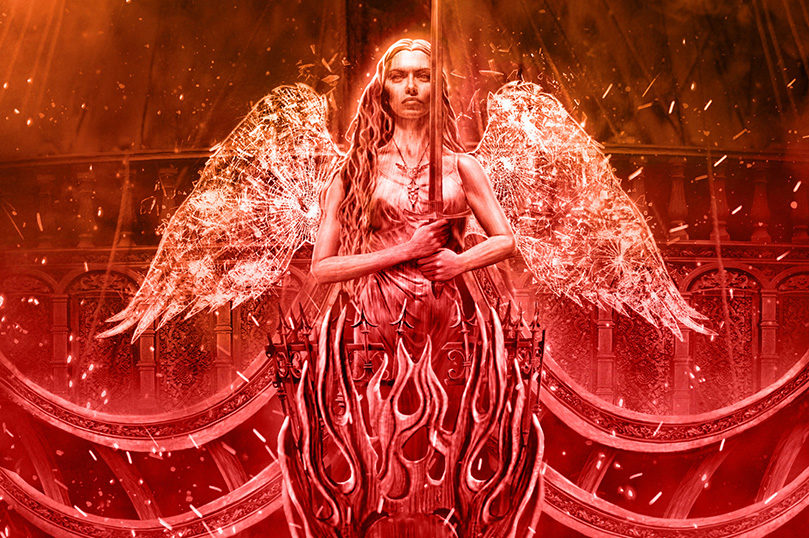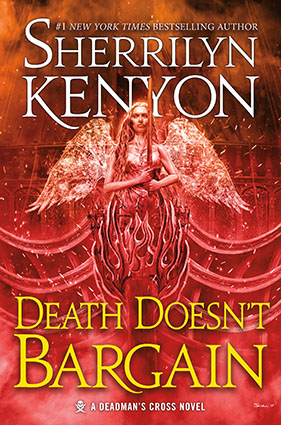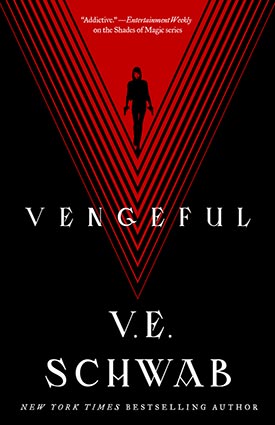 Welcome to #FearlessWomen! A super-powered collision of extraordinary minds and vengeful intentions—V. E. Schwab returns with the thrilling follow-up to Vicious.
Welcome to #FearlessWomen! A super-powered collision of extraordinary minds and vengeful intentions—V. E. Schwab returns with the thrilling follow-up to Vicious.
Magneto and Professor X. Superman and Lex Luthor. Victor Vale and Eli Ever. Sydney and Serena Clarke. Great partnerships, now soured on the vine.
But Marcella Riggins needs no one. Flush from her brush with death, she’s finally gained the control she’s always sought—and will use her new-found power to bring the city of Merit to its knees. She’ll do whatever it takes, collecting her own sidekicks, and leveraging the two most infamous EOs, Victor Vale and Eli Ever, against each other once more.
With Marcella’s rise, new enmities create opportunity–and the stage of Merit City will once again be set for a final, terrible reckoning.
Vengeful will be available on September 25th. Please enjoy this excerpt.
I
FOUR WEEKS AGO
HALLOWAY
“I won’t ask you again,” said Victor Vale as the mechanic scrambled backward across the garage floor. Retreating—as if a few feet would make a difference. Victor followed slowly, steadily, watched as the man backed himself into a corner.
Jack Linden was forty-three, with a five-o’clock shadow, grease under his nails, and the ability to fix things.
“I already told you,” said Linden, jumping nervously as his back came up against a half-built engine. “I can’t do it—”
“Don’t lie to me,” warned Victor.
He flexed his fingers around the gun, and the air crackled with energy.
Linden shuddered, biting back a scream.
“I’m not!” yelped the mechanic. “I fix cars. I put engines back together. Not people. Cars are easy. Nuts and bolts and fuel lines. People are too much more.”
Victor didn’t believe that. Had never believed that. People were more intricate perhaps, more nuanced, but fundamentally machines. Things that worked, or didn’t, that broke down, and were repaired. Could be repaired.
He closed his eyes, measuring the current inside him. It was already in his muscles, already threading his bones, already filling his chest cavity. The sensation was unpleasant, but not nearly as unpleasant as what would happen when the current peaked.
“I swear,” said Linden, “I’d help you if I could.” But Victor heard him shift. Heard a hand knocking against the tools strewn across the floor. “You have to believe me…” he said, fingers closing around something metal.
“I do,” said Victor, eyes flicking open right as Linden lunged at him, wrench in hand. But halfway there, the mechanic’s body slowed, as if caught in a sudden drag, and Victor swung the gun up and shot Linden in the head.
The sound echoed through the garage, ricocheting off concrete and steel as the mechanic fell.
How disappointing, thought Victor, as blood began to seep across the floor.
He holstered the gun and turned to go, but only made it three steps before the first wave of pain hit, sudden and sharp. He staggered, bracing himself against the shell of a car as it tore through his chest.
Five years ago, it would have been a simple matter of flipping that internal switch, killing power to the nerves, escaping any sensation.
But now—there was no escape.
His nerves crackled, the pain ratcheting up like a dial. The air hummed with the energy, and the lights flickered overhead as Victor forced himself away from the body and back across the garage toward the wide metal doors. He tried to focus on the symptoms, reduce them to facts, statistics, measurable quantities, and—
The current arced through him, and he shuddered, pulling a black mouth guard from his coat and forcing it between his teeth just before one knee give way, his body buckling under the strain.
Victor fought—he always fought—but seconds later he was on his back, his muscles seizing as the current peaked, and his heart lurched, lost rhythm—
And he died.
II
FIVE YEARS AGO
MERIT CEMETERY
Victor had opened his eyes to cold air, grave dirt, and Sydney’s blond hair, haloed by the moon.
His first death was violent, his world reduced to a cold metal table, his life a current and a dial turning up and up, electricity burning through every nerve until he finally cracked, shattered, crashed down into heavy, liquid nothing. The dying had taken ages, but death itself was fleeting, the length of a single held breath, all the air and energy forced from his lungs the moment before he surged up again through dark water, every part of him screaming.
Victor’s second death was stranger. There had been no electric surge, no excruciating pain—he’d thrown that switch long before the end. Only the widening pool of blood beneath Victor’s knees, and the pressure between his ribs as Eli slid the knife in, and the world giving way to darkness as he lost his hold, slipped into a death so gentle it felt like sleep.
Followed by—nothing. Time drawn out into a single, unbroken second. A chord of perfect silence. Infinite. And then, interrupted. The way a pebble interrupts a pond.
And there he was. Breathing. Living.
Victor sat up, and Sydney flung her small arms around him, and they sat there for a long moment, a reanimated corpse and a girl kneeling on a coffin.
“Did it work?” she whispered, and he knew she wasn’t talking about the resurrection itself. Sydney had never revived an EO without consequences. They came back, but they came back wrong, their powers skewed, fractured. Victor felt gingerly along the lines of his power, searching for frayed threads, interruptions in the current, but felt—unchanged. Unbroken. Whole.
It was a rather overwhelming sensation.
“Yes,” he said. “It worked.”
Mitch appeared at the side of the grave, his shaved head glistening with sweat, his tattooed forearms filthy from the dig. “Hey.” He drove a spade into the grass and helped Sydney and then Victor up out of the hole.
Dol greeted him by leaning heavily against his side, the dog’s massive black head nestling under his palm in silent welcome.
The last member of their party slumped against a tombstone. Dominic had the shaken look of an addict, pupils dilated from whatever he’d taken to numb his chronic pain. Victor could feel the man’s nerves, frayed and sparking like a shorted line.
They’d made a deal—the ex-soldier’s assistance in exchange for taking away his suffering. In Victor’s absence, Dominic clearly hadn’t been able to keep his end of the bargain. Now Victor reached out and switched the man’s pain off like a light. Instantly, the man sagged backward, tension sliding like sweat from his face.
Victor retrieved the shovel and held it out to the soldier. “Get up.”
Dominic complied, rolling his neck and rising to his feet, and together the four of them began filling Victor’s grave.
***
Two days.
That’s how long Victor had been dead.
It was an unsettling length of time. Long enough for the initial stages of decay. The others had been holed up at Dominic’s place, two men, a girl, and a dog, waiting for his corpse to be buried.
“It’s not much,” said Dom now, opening the front door. And it wasn’t—a small and cluttered single bedroom with a beat-up sofa, a concrete balcony, and a kitchen covered in a thin layer of dirty dishes—but it was a temporary solution to a longer dilemma, and Victor was in no condition to face the future, not with grave dirt still on his slacks and death lingering in his mouth.
He needed a shower.
Dom led him through the bedroom—narrow and dark, a single shelf of books, medals lying flat and photographs facedown, too many empty bottles on the windowsill.
The soldier scrounged up a clean long-sleeve shirt, embossed with a band logo. Victor raised a brow. “It’s all I have in black,” he explained.
He switched on the bathroom light and retreated, leaving Victor alone.
Victor undressed, shrugging out of the clothes he’d been buried in—clothes he didn’t recognize, hadn’t purchased—and stood before the bathroom mirror, surveying his bare chest and arms.
He wasn’t free of scars—far from it—but none of them belonged to that night at the Falcon Price. Gunshots echoed through his mind, ricocheting off unfinished walls, the concrete floor slick with blood. Some of it his. Most of it Eli’s. He remembered each and every wound made that night—the shallow cuts across his stomach, the razor-sharp wire cinching over his wrists, Eli’s knife sliding between his ribs—but they left no mark.
Sydney’s gift really was remarkable.
Victor turned the shower on and stepped beneath the scalding water, rinsing death from his skin. He felt along the lines of his power, turned his focus inward, the way he’d done years before, when he’d first gone to prison. During that isolation, unable to test his new power on anyone else, Victor had used his own body as a subject, learned everything he could about the limits of pain, the intricate network of nerves. Now, bracing himself, he turned the dial in his mind, first down, until he felt nothing, and then up, until every drop of water on bare skin felt like knives. He clenched his teeth against the pain and turned the dial back to its original position.
He closed his eyes, brought his head to rest against the tile wall, and smiled, Eli’s voice echoing through his head.
You can’t win.
But he had.
***
The apartment was quiet. Dominic stood out on the narrow balcony, puffing on a cigarette. Sydney was curled on the sofa, folded up carefully like a piece of paper, with the dog, Dol, on the floor beside her, chin resting by her hand. Mitch sat at the table, shuffling and reshuffling a deck of cards.
Victor took them all in.
Still collecting strays.
“What now?” asked Mitch.
Two small words.
Single syllables had never weighed so much. For the last ten years, Victor had focused on revenge. He’d never truly intended to see the other side of it, but now, he’d fulfilled his objective—Eli was rotting in a cell—and Victor was still here. Still alive. Revenge had been an all-consuming pursuit. Its absence left Victor uneasy, unsatisfied.
What now?
He could leave them. Disappear. It was the smartest course—a group, especially one as strange as this, would draw attention in ways that solitary figures rarely did. But Victor’s talent allowed him to bend the attention of those around him, to lean on their nerves in ways that registered as aversion, subtle, abstract, but efficient. And as far as Stell knew, Victor Vale was dead and buried.
Six years he’d known Mitch.
Six days he’d known Sydney.
Six hours he’d known Dominic.
Each of them was a weight around Victor’s ankles. Better to unshackle himself, abandon them.
So leave, he thought. His feet made no progress toward the door.
Dominic wasn’t an issue. They’d only just met—an alliance forged by need and circumstance.
Sydney was another matter. She was his responsibility. Victor had made her so when he killed Serena. That wasn’t sentiment—it was simply a transitive equation. A factor passed from one quotient to another.
And Mitch? Mitch was cursed, he’d said so himself. Without Victor, it was only a matter of time before the hulking man ended up back in prison. Likely the one he’d broken out of with Victor. For Victor. And, despite knowing her less than a week, Victor was certain Mitch wouldn’t abandon Sydney. Sydney, for her part, seemed rather attached to him, too.
And then, of course, there was the issue of Eli.
Eli was in custody, but he was still alive. There was nothing Victor could do about that, given the man’s ability to regenerate. But if he ever got out—
“Victor?” prompted Mitch, as if he could see the turn of his thoughts, the direction they were veering.
“We’re leaving.”
Mitch nodded, trying and failing to hide his clear relief. He’d always been an open book, even in prison. Sydney uncurled from the sofa. She rolled over, her ice blue eyes finding Victor’s in the dark. She hadn’t been sleeping, he could tell.
“Where are we going?” she asked.
“I don’t know,” answered Victor. “But we can’t stay here.”
Dominic had slipped back inside, bringing a draft of cold air and smoke. “You’re leaving?” he asked, panic flickering across his face. “What about our deal?”
“Distance isn’t a problem,” said Victor. It wasn’t strictly true—once Dominic was out of range, Victor wouldn’t be able to alter the threshold he’d set. But his influence should hold. “Our deal stays in effect,” he said, “as long as you still work for me.”
Dom nodded quickly. “Whatever you need.”
Victor turned to Mitch. “Find us a new car,” he said. “I want to be out of Merit by dawn.”
And they were.
Two hours later, as the first light cracked the sky, Mitch pulled up in a black sedan. Dom stood in his doorway, arms crossed, watching as Sydney climbed into the back, followed by Dol. Victor slid into the passenger’s seat.
“You sure you’re good?” asked Mitch.
Victor looked down at his hands, flexed his fingers, felt the prickle of energy under his skin. If anything, he felt stronger. His power crisp, clear, focused.
“Better than ever.”
Copyright © 2018 by Victoria Schwab
Order Your Copy

